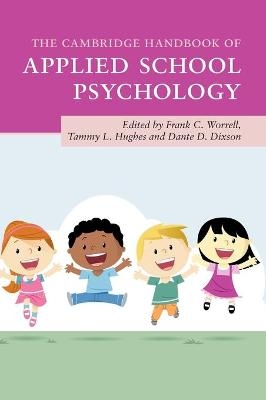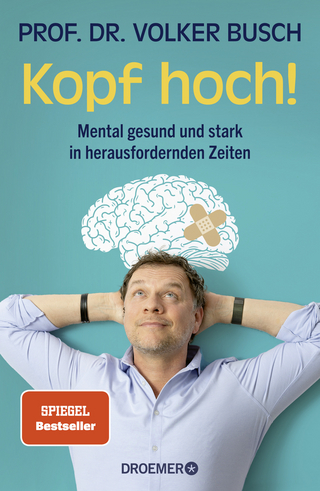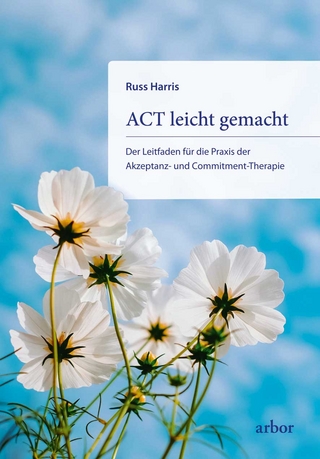
The Cambridge Handbook of Applied School Psychology
Cambridge University Press (Verlag)
978-1-108-41596-5 (ISBN)
Practice books are often simple 'how to' lists or straightforward 'recipes' and the practitioner still does not know why the activity is related to the outcome they seek. In essence, they lose how the specifics of the practice are related to the theory of change or the theory of how the problem developed in the first place. This leads to practitioners potentially removing crucial elements of best practice procedures when making modifications to tackle new or different problems in an unfamiliar context. By understanding the theoretical underpinnings, practitioners can better plan for adjustments because they know how the outcomes they seek are informed by the theory. Engagingly written and perfect for day-to-day use, this book translates state-of-the-art research and interdisciplinary theory into practical recommendations for those working with children and adolescents.
Frank C. Worrell is a professor of school psychology at the University of California, Berkeley. He has won multiple awards for his research and is a fellow of the American Psychological Association, the American Educational Research Association, and the Association for Psychological Science. Tammy L. Hughes is a professor of school psychology at Duquesne University, Pittsburgh. A school psychologist, licensed psychologist, and board certified in school psychology, she is active on the national level and serves as the Division of School Psychology's Council Representative. Dante D. Dixson is an assistant professor at Michigan State University, within the School and Education Psychology Programs. He currently serves as a board member for the Roeper Institute, the Michigan Association of Gifted Children, and Boys Hope Girls Hope-Detroit.
1. Broadening the focus of school psychology practice Frank C. Worrell, Tammy L. Hughes and Dante D. Dixson; Part I. Individual-Level Academic Interventions: 2. Enhancing reading motivation in schools Jamie Zibulsky and Lily Schwartz; 3. Addressing won't do issues in mathematics Christopher H. Skinner, Shelby Wright and Elizabeth McCallum; 4. Learning disabilities in mathematics Amanda McKerracher; 5. Executive function and school performance Cynthia A. Riccio and Maria J. Castro; Part II. Teacher and System-Level Interventions: 6. School-based interventions Nicholas Gelbar and Lea A. Theodore; 7. Helping teachers use progress monitoring for decision making Matthew K. Burns, Lisa Aguilar and Crystal Taylor; 8. Working with teachers on Tier 1 Linda Reddy and Adam Lekwa; 9. The academic support index: a tool for understanding student data David Stevens; Part III. Interventions from Educational and Social/Personality Psychology: 10. Belonging in schools Amanda D. Perez, Randy T. Lee and Rodolfo Mendoza-Denton; 11. Cross-race/cross-ethnic friendships in school Sandra Graham and Kara Kogachi; 12. Self-regulated learning in school contexts Timothy J. Cleary, Gregory L. Callan and Erica R. Pawlo; 13. School environments that facilitate delay of gratification Hefer Bembenutty; 14. The role of hope in school settings Dante D. Dixson; 15. School settings that facilitate high teacher expectations Christine Rubie-Davies and Annaline Flint; 16. Parental autonomy and relatedness support John Mark Froiland; 17. Preventing and minimizing stereotype threat in school settings Jennifer Randall Crosby; 18. How implicit gender bias impacts academic engagement Antonya Marie Gonzalez, Hee Jae Julie Oh and Andrew Scott Baron; Part IV. Behavioral and Social Emotional Interventions: 19. Internalizing problems and disorders of childhood Randy W. Kamphaus, Emily Walden and Dianna Carrizales-Englemann; 20. Adolescent suicidal behavior in schools: what to know and what to do James J. Mazza and David N. Miller; 21. Emotional disturbance vs social maladjustment Tammy L. Hughes, Michael Tansy and Elizabeth A. Pask; 22. When conduct problems become illegal acts: helping individuals with autism Elizabeth A. Pask and Tammy L. Hughes; 23. Effective bullying prevention and intervention strategies for school professionals Susan M. Swearer, Allen Garcia, Ana M. Damme, Shir Palmon, Nicholas Asay and Mario Scalora; 24. Prevention and intervention to close discipline gaps in schools Anne Gregory and Russell Skiba; 25. Social emotional learning in schools James C. DiPerna, Jennifer R. Frey and Susan C. Hart; Part V. Health and Pediatric Interventions: 26. Impairments related to medical conditions David L. Wodrich; 27. Psychological considerations for asthma Melissa Bray, Melissa Root, Meiko Howell and Evelyn Bilias; 28. Substance usage Sheila Yu and Steve Sussman; 29. Coordinating services with non-school providers Maria E. Golden and George J. DuPaul; Part VI. Family Connections and Life Transitions: 30. Parent-teacher relationships Kathleen M. Minke and Jordana S. Woodford; 31. Facilitating the transition to college Judith Kaufman and Camilla Overup; 32. Transition from school to work Ara Schmitt, Jamie Yabrough and Jenna Hennessey; Part VII. Special Populations: 33. School psychologists in early childhood settings Vincent C. Alfonso, Susan Ruby, Addy M. Wissel and Jaleh Davari; 34. Serving gifted and talented students Paula Olszewski-Kubilius, Frank C. Worrell and Rena F. Subotnik; 35. How best to serve court-involved youth in schools James R. Andretta; 36. School-based interventions for refugee children and adolescents Zuhra Teja and Frank C. Worrell; Part VIII. Conclusion: 37. School psychology in the 21st century Frank C. Worrell, Dante D. Dixson and Tammy Hughes; Index.
| Erscheinungsdatum | 21.09.2020 |
|---|---|
| Reihe/Serie | Cambridge Handbooks in Psychology |
| Zusatzinfo | Worked examples or Exercises |
| Verlagsort | Cambridge |
| Sprache | englisch |
| Maße | 185 x 264 mm |
| Gewicht | 1500 g |
| Themenwelt | Sachbuch/Ratgeber ► Gesundheit / Leben / Psychologie ► Psychologie |
| Geisteswissenschaften ► Psychologie ► Pädagogische Psychologie | |
| Sozialwissenschaften ► Pädagogik ► Didaktik | |
| ISBN-10 | 1-108-41596-2 / 1108415962 |
| ISBN-13 | 978-1-108-41596-5 / 9781108415965 |
| Zustand | Neuware |
| Haben Sie eine Frage zum Produkt? |
aus dem Bereich


